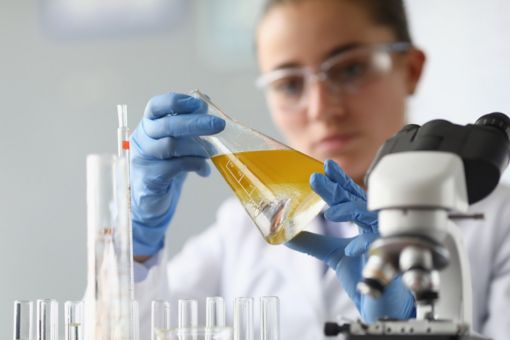To help unravel some of the complexities related to business transformation, this publication presents some of KPMG’s sector-specific views on strategic and regulatory considerations that can contribute to the present and future sustainability of Life Science companies.
We look at the twin transition: how digital technologies and sustainability approaches can, and should, be developed and implemented together when undertaking business transformation. We encourage executives to be bold in their thinking and connect these ambitions using a systems-based approach.
We also look at the critical role of working in partnership with other stakeholders in the value chain, drawing on both the direct experiences of some of our Life Sciences clients and our own research.
We believe that there are many reasons for pharmaceutical, medical devices, and biotechnology companies to be motivated to undertake the journey to sustainable transformation. No matter how far along you are on this path, we encourage you to reach out to us to discuss any of the topics covered in this publication in more detail.
Drawing on research, KPMG expertise from across our international network of firms, and perspectives from some of the leading companies in the Life Sciences sector, our key recommendations include to:
- Prioritize responsible and transparent stakeholder communication. This is critical to build and maintain trust in the intentions and activities of Life Sciences companies. Being proactive in communicating and collaborating with regulators, partners, investors, communities, customers, and others in the value chain is essential to demonstrate leadership and deliver on sustainability and ESG objectives.
- Invest in coordinated change management throughout the entire organization and value chain. As tempting as it may be to make small tweaks here and there, what we’ve seen time and again is that a hesitant approach leads to hesitant results. We encourage business leaders to be bold, leverage systems-thinking and take a coordinated approach to change management that successfully transforms their businesses. Strategic communication to ensure buy-in across all levels of the organization and value chain is critical here as well.
- Develop affordable therapies and products. Life Sciences companies are in the unique position of being able to have a positive social impact at every stage of the patient's journey: from prevention, to treatment, to management and/or cure. As a critical sector, the products and services developed by Life Sciences companies are needed in every country and community. This places Life Sciences companies in an influential position in healthcare ecosystems that they can leverage for social good to ensure fair, equitable, and affordable access to their products and therapies, and is a key pillar upon which the reputation of Life Sciences companies is upheld or weakened.
- Improve ecology and environmental performance. Given the close relationship between Life Sciences companies and the environment, this is a no-brainer. It’s in the existential interest of Life Sciences companies to invest in and support initiatives that reduce environmental harm, regenerate biodiversity, and increase circularity of products and materials.
- Implement better governance. Increased regulation brings increased scrutiny by stakeholders and risk of liability for directors. Life Sciences companies should reduce risks by investing in the appropriate technology for data collection and ensure that due diligence and monitoring activities are taken seriously – especially in areas of the value chain where there is higher third-party risk.
- Prepare for ESG reporting and assurance. Love it or hate it, ESG is here to stay for the foreseeable future. While regulators are currently allowing some flexibility to give companies to adapt to the new requirements, investing in improving your company’s ESG performance now can reduce your exposure to regulatory risk and help you avoid costly surprises in the future.

Unravelling Sustainable Business Transformation in Life Sciences
Discover the strategic and regulatory considerations that can contribute to the present and future sustainability of Life Science companies.
Download PDF (5 KB) ⤓
How KPMG can help
From biotechnology startups and medical device companies to pharmaceutical multinationals, KPMG is in the unique position of being able to offer our clients full access to our tightly knit network of experienced Life Sciences and Sustainability/ESG experts, so you can draw on local knowledge and sector specific expertise, available onsite wherever your operations are located across the European, Middle-Eastern, and African regions.
Not only that, but our services in these areas are also well-connected with our other professional services and sectoral expertise, offering you a flexible range of multidisciplinary options that can be tailored to the specific needs of your company and adapted to different situations or to support your evolving strategy along every step of the journey.
There’s good news ahead for the Life Sciences sector, with many opportunities for companies to not only increase revenues and demonstrate regulatory compliance, but also gain strategic advantage with an integrated ESG approach. To go deeper into some of the perspectives we’ve shared and better understand how you can use them to your company’s advantage, please don’t hesitate to reach out to us. We’re passionate about these topics and welcome the opportunity to discuss any aspect with you in more detail.
Explore
Connect with us
- Find office locations kpmg.findOfficeLocations
- kpmg.emailUs
- Social media @ KPMG kpmg.socialMedia





